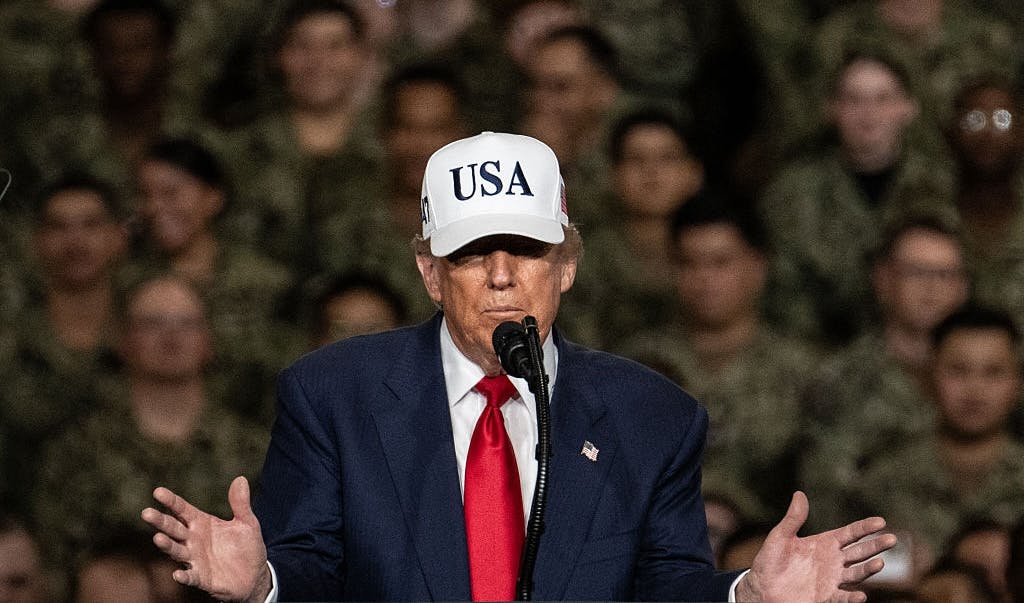Students for Fair Admissions and Naval Academy File Motion to Vacate Opinion Allowing Academy to Use Race in Admissions

Imagine judging a trial, ruling for one party and writing a 179-page opinion, only to find the same parties asking you to vacate your opinion and dismiss the case six months later! That’s exactly what has happened to the federal district court judge who presided over trial in the Students for Fair Admissions versus the United States Naval Academy case last year.
Live Your Best Retirement
Fun • Funds • Fitness • Freedom
How We Got Here
In June 2023, the Supreme Court held that public and private colleges and universities could not use racial preferences in admissions because that violates the Equal Protection Clause of the 14th Amendment. Chief Justice John Roberts, who wrote the majority opinion, noted in a footnote that since the military service academies were not parties to the lawsuits against Harvard and the University of North Carolina, the opinion was not applicable to them “in light of the potentially distinct interests that military academies may present.”
In the fall of 2023, Students for Fair Admissions sued the Naval Academy in federal court alleging that the consideration of race or ethnicity in admissions at the academy violates the Constitution. To establish standing, Students for Fair Admissions represented Member D (a pseudonym), a white applicant who was otherwise qualified, but was denied admission to the Naval Academy .
The Trial
In December 2024, after a nine-day bench trial in federal district court in Baltimore a few months earlier, Judge Richard D. Bennett ruled in favor of the Naval Academy, holding that the service academy could continue to use race in its admissions process as it was narrowly tailored to achieve what the Biden administration claimed was a compelling national security interest, namely “diversity.”
Bennett dedicated several pages of his opinion to the concept of judicial deference to the legislative and executive branches in military matters. The Supreme Court, according to Bennett, has treated the military “separate and apart from civilian institutions in at least three areas: (1) constitutional challenges; (2) military personnel policies; and (3) military justice.”
Bennet got one thing correct: “military judgment is set by the President of the United States and not the federal judiciary.”
One of us (Stimson) covered the trial in a three-part series, found here, here, and here. The thrust of the government’s argument centered on the wholly unsupported opinion of military leaders, some of whom testified as expert witnesses for the government, that a diverse military force is imperative to national security.
Under cross-examination, none of those witnesses were able to point to any peer-reviewed studies to prove their point, nor were they able to show that diverse units were more effective, efficient, or lethal than other units.
Worse than that, a key government expert witness reluctantly admitted under cross-examination that the federal government itself, and DOD in particular, had failed to implement the recommendations from a 2011 congressionally-mandated diversity commission that would have vastly increased the number of qualified minority applicants to the service academies, without the need to resort to using racial preferences (as we wrote here).
But those inconvenient facts seemingly didn’t matter to the judge.
The odd part of the entire trial was the fact that the service academies only provide about 18% of the officers across the services. Fully 82% of officers in the U.S. armed forces graduate from colleges other than the service academies, and those colleges and universities are prohibited from using race in admissions because of the Supreme Court’s decision in 2023.
At trial, lawyers for Students for Fair Admissions called several distinguished military officers as experts in their case-in-chief. One witness, retired Marine Corps Lt. Col. Dakota Woods, a Naval Academy graduate, was particularly impressive. He was a former employee of the renowned Dr. Andrew Marshall. Marshall was one of the most distinguished American defense and foreign policy experts in the last 100 years and head of the Pentagon’s Office of Net Assessment—the think tank inside the Defense Department. Woods testified that not a single study existed showing a correlation between a diverse officer corps and lethality, retention, efficiency, or military readiness of our forces.
Woods (a former Heritage colleague) was right, and the government didn’t even try to rebut his testimony on cross-examination.
That too seemingly didn’t matter to the trial judge, who barely mentioned Woods’ testimony and didn’t even address the dearth of studies noted by Woods in his opinion.
Trump Takes Office
After President Donald Trump took office, he issued Executive Order 14185. Entitled “Restoring America’s Fighting Force,” the EO orders every element of our armed forces to “operate free from any preference based on race or sex.”
Shortly after EO 14185 was issued, Secretary of Defense Pete Hegseth issued a memorandum to the entire Department of Defense on Jan. 29, 2025, entitled “Restoring America’s Fighting Force.” In it, he emphasized that because DOD’s mission is “to win the Nation’s wars,” it is imperative to “have a lethal fighting force that rewards individual initiative, excellence, and hard work based on merit.”
Hegseth noted that a “foundational tenet of the DOD must be that the most qualified individuals are placed in positions of responsibility in accordance with merit-based, colorblind policies.” To that end, Hegseth found that diversity, equity and inclusion policies “are incompatible with the values of DOD.”
Hegseth followed up that DOD-wide memorandum with a military service-academy specific order on May 9 entitled “Certification of Merit-Based Military Service Academy Admissions.”
It directed the secretaries of the military departments to certify that for purposes of the 2026 military service academies’ admissions cycle, as well as all future admissions cycles, their respective admissions’ offices will not consider race, ethnicity, or sex during the selection process and that offers of admissions will be based “exclusively on merit.”
Failure to focus exclusively on merit, Hegseth said, “erodes lethality, our warfighting readiness, and undercuts the culture of readiness in our Armed Forces.”
The military judgment of Trump, and expanded upon by the secretary of defense, could not be clearer.
Erasing Bennett’s Decision
One would think that and order from Trump and Hegseth would settle the matter, and in one sense, it has. The military service academies must follow the lawful orders of the commander in chief and the secretary of defense. Hegseth’s order not to use race in admissions is a lawful order, so it must be followed. Failure to follow a lawful order is a criminal offense in the military.
But that’s only a short-term fix to the issue. That still leaves the existence of Bennett’s judgment and opinion in place for others to rely upon as settled law in the future.
So, earlier this month, after Member D was admitted to the Naval Academy, it filed a joint motion with Students for Fair Admissions to dismiss and the court’s judgment and opinion for two main reasons:
First, since Member D was admitted to the Naval Academy and planned to matriculate, the case was moot.
Second, since the military judgment of the Trump administration is that diversity is a not compelling national security interest and does not contribute to lethality, that calls into question the very deference Bennett relied upon to justify, in large part, his opinion.
The joint motion makes several representations, including:
- The consideration of race and ethnicity in admissions at the Naval Academy does not promote cohesiveness, lethality, recruitment, retention, legitimacy, national security, or any other governmental interest.
- Recruiting and promoting individuals based on merit alone, and not based on their immutable characteristics, improves unit cohesion and performance.
- The recruitment, retention, and legitimacy of the U.S. military is not positively affected by the service academies’ consideration of race in admissions.
- Merit-only admissions practices increase the legitimacy of the U.S. military.
- Race-based admissions practices at the Naval Academy do not support any valid military interest.
The representations were chosen carefully, as they represented the mirror-opposite of the rationale in Bennett’s opinion.
On to West Point and the Air Force Academy
Assuming Bennett swallows his pride and follows the law, he should grant the joint motion to vacate his judgment and opinion and dismiss the case. Once he does so, his opinion cannot be cited or relied upon in the future.
However, Students for Fair Admissions has sued the United States Military Academy at West Point and the United States Air Force Academy to prohibit them from using race in admissions. They are not using race in admissions now given Hegseth’s order, but those lawsuits are still out there. We look forward to seeing what the Justice Department will do with those cases.
The post Students for Fair Admissions and Naval Academy File Motion to Vacate Opinion Allowing Academy to Use Race in Admissions appeared first on The Daily Signal.
Originally Published at Daily Wire, Daily Signal, or The Blaze
What's Your Reaction?
 Like
0
Like
0
 Dislike
0
Dislike
0
 Love
0
Love
0
 Funny
0
Funny
0
 Angry
0
Angry
0
 Sad
0
Sad
0
 Wow
0
Wow
0











































































